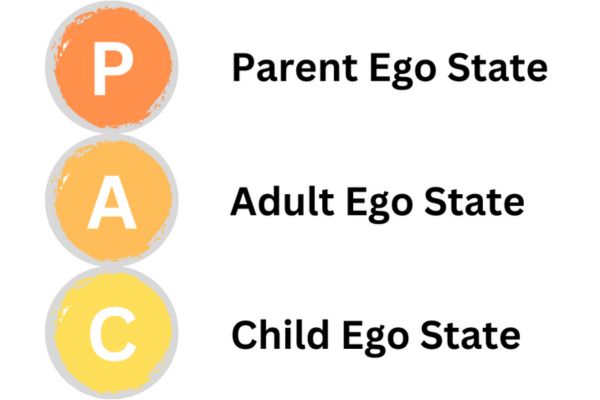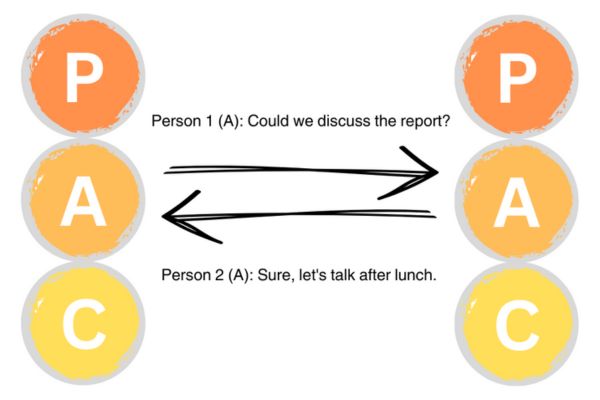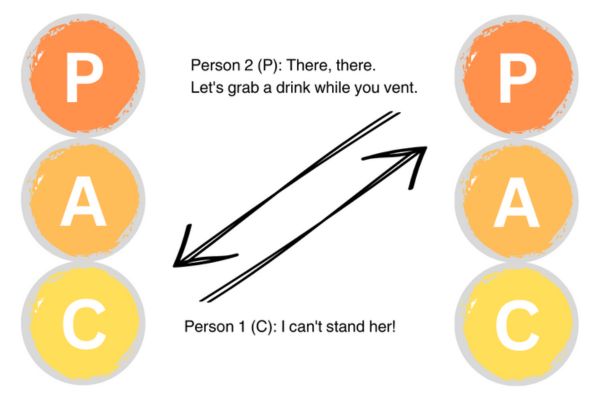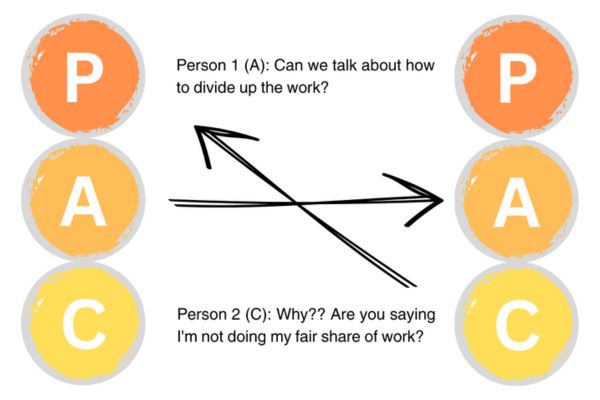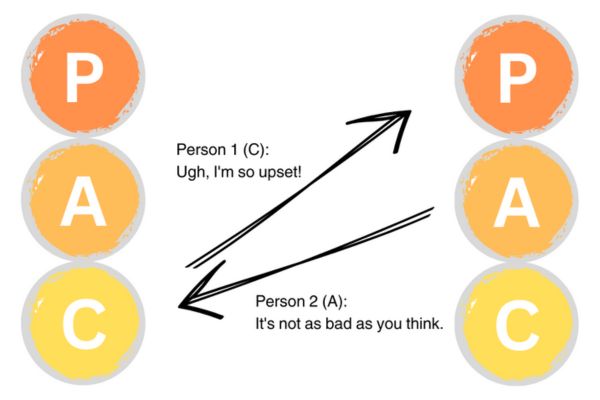We’ve all been there before. Two people are having a perfectly fine conversation when all of a sudden, the atmosphere shifts and they move into an awkward space.
The conversation may go something like this:
A: Have you called the repair man yet?
B: Oh, I forgot. I was going to do it later.
A: I’ve already told you that you shouldn’t delay this sort of thing. How many times do I have to remind you?
B: Enough, stop nagging me!
Many of us are familiar with these sorts of interactions where loved ones that talk down to us, treating us like a child or nagging us and acting like our parent. It can happen in all types of relationships too.
What’s going on? Transactional Analysis offers us a way of understanding these dynamics.
What is Transactional Analysis?
Transactional Analysis is a social psychological theory developed by Eric Berne. It is based on a coherent theoretical framework involving the analysis of ego states, transactions, games and early childhood script patterns that guide behaviour, thinking and feeling.
Based on Transactional Analysis, communication breakdowns can happen when we react from different ego states rather than being fully present in the here and now. When these ego states cross, conflict can arise.
Ego States
There are three distinct ego states: Parent, Adult, Child (P-A-C).
The Parent Ego State is based on behaviours, thoughts, and feelings that have been modelled to us by our parents and parental figures in our early lives. This includes actions such as criticising, scolding, nurturing, and caring for others.
The Adult Ego State is based on the “here and now” here rational decisions are made based on information gathered in the present moment. We are calm, confident, and reasonable in this state.
The Child Ego State is based on the past behaviours, thoughts, and feelings we had as a child in the first five years of our life. This can include creative, spontaneous actions but also actions that involve the venting of emotions such as tantrums, sulking, or showing displeasure.
At any given moment, we may find ourselves acting from the parent, adult, or child ego state.
Types of transactions
Complementary Transactions
Complementary transactions flow smoothly and harmoniously where both parties respond in an expected manner with the ego state addressed being the one that responds. If transactions remain complementary, communication can go on indefinitely. Both parties feel acknowledged and understood.
Example 1: Adult-Adult
Example 2: Child-Parent
Crossed Transactions
Crossed transactions occur when one person receives a response that differs from what he or she expected, i.e., the ego state addressed is not the one that responds.
Example 1:
Here, Person 1 asked a question from the Adult ego state, hoping to get a response from Person 2’s Adult ego state.
Unfortunately, Person 2’s Child ego state got activated and they felt unfairly criticised, resulting in an angry response.
Example 2:
Here, Person 1 initiated from a Child ego state as they were upset and wanted to be comforted with a response from a Parent ego state.
However, Person 2 did not think the situation was that bad and responded from an Adult ego state.
Person 1 is likely to feel dismissed as their needs were not met in this transaction.
Miscommunications
In some interactions, we may notice that one thing is said but perceived in an entirely different manner with the other party responding poorly. This may give rise to a situation where one or both parties feeling misunderstood, triggered, or unheard. If we analyse the scenario, we may find that a crossed transaction, or a complementary transaction where both parties lead each other on (e.g., two triggered Child ego states) has taken place.
Being Aware of Your Ego States
The next time a crossed transaction occurs, step back and observe which ego state you and the other party are in. Being aware of the ego states that are activated (the Parent, Child, or Adult ego state) can help us understand the relational dynamics in our interaction. In doing so, you grow in self-awareness and become better at meeting the needs of yourself and others.
Crucially, you may notice a pattern of interaction in certain relationships where you face constant issues. Perhaps you and your spouse are constantly embroiled in interactions where you assume the Parent ego state, and he or she takes up the Child ego state. A knowledge of Transactional Analysis allows you to choose to act from the Adult ego state even if your adapted Child is whining on the inside.
In summary, you can take these steps:
- Pause and observe which ego state you and the other party are in.
- Ask what both your needs are in the moment (is it a nurturing Parent or a mature Adult response)?
- Decide which ego state would best to shift into.
- Step into that desired ego state.
- After the encounter, address any lingering feelings that you may have suppressed from a Child or Parent ego state.
Try it out and see how Transactional Analysis can help you gain greater insight and self-awareness into your interactions with others!
Please read the blog – Transform Your Relationship with Transactional Analysis: A Guide to Better Communication
References:
Berne, E. (1961). Transactional Analysis in Psychotherapy. New York: Grove Press.
https://rediscoveryofme.com/transactional-analysis/
https://www.mindtools.com/ayjtd4p/transactional-analysis
https://medium.com/@NataliMorad/how-to-communicate-better-with-transactional-analysis-d0d32f9d50da


